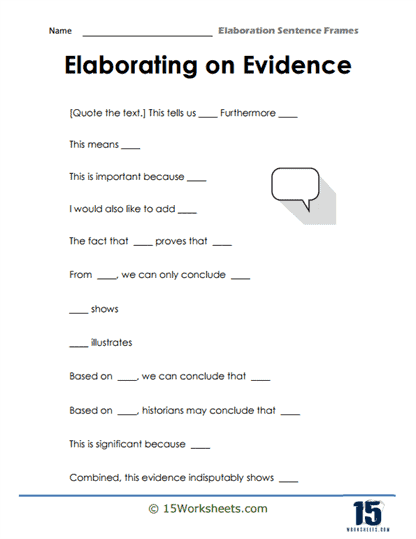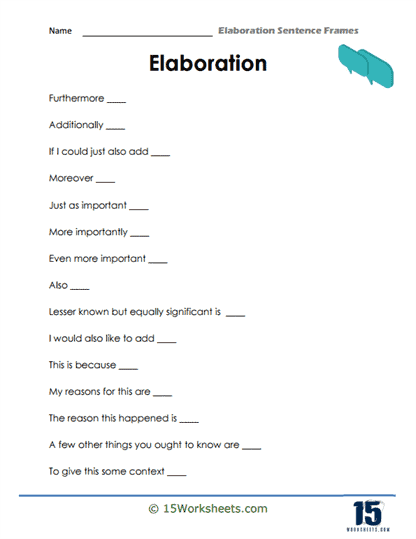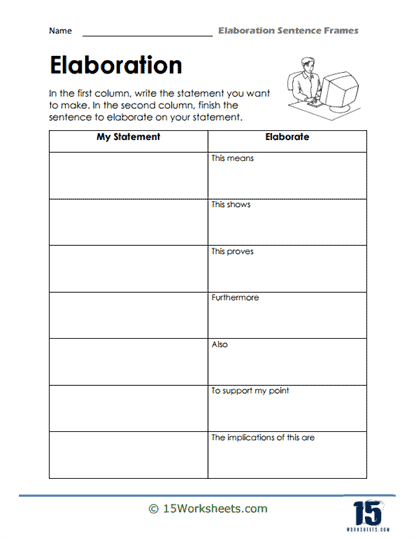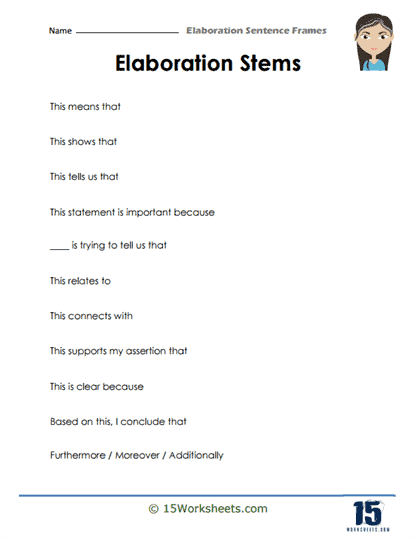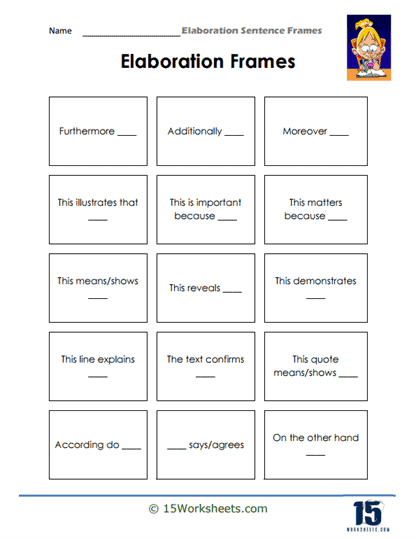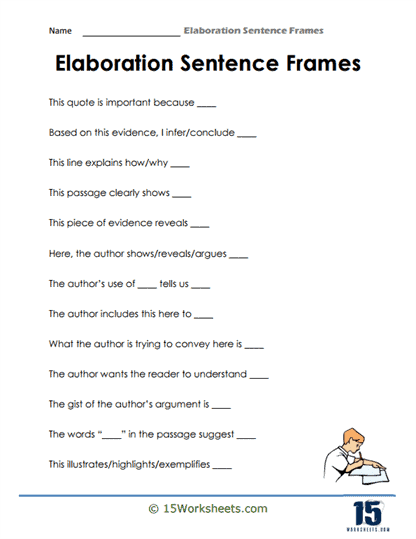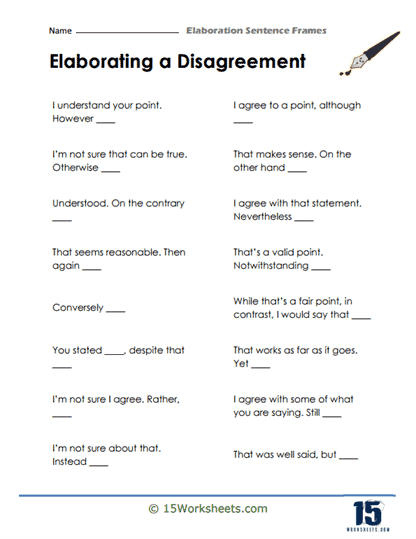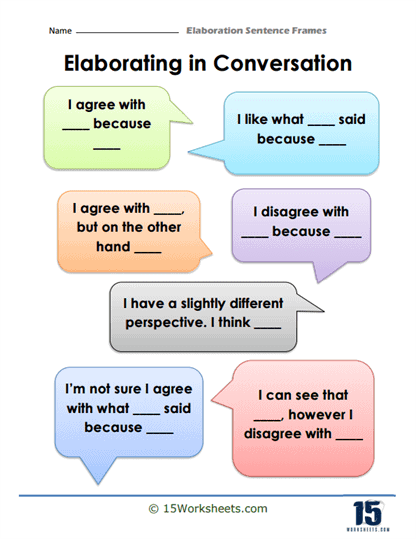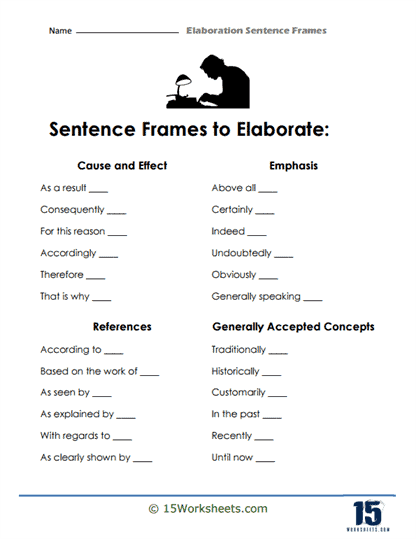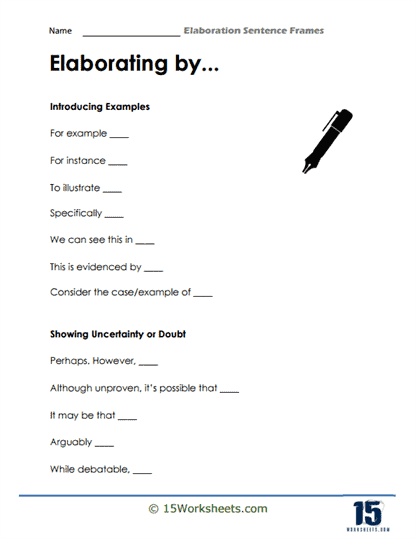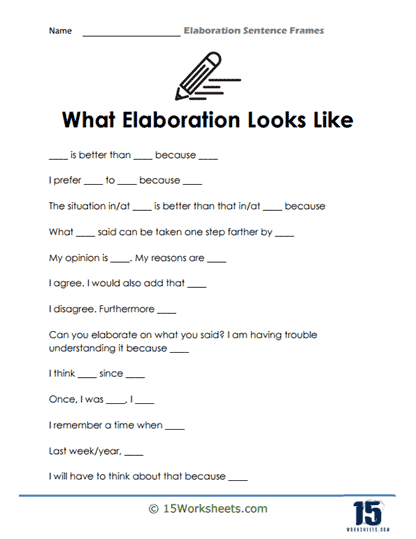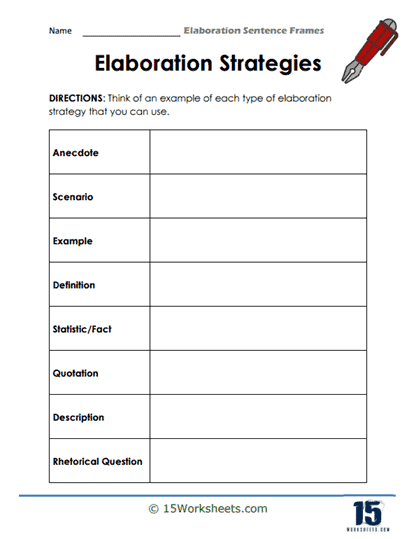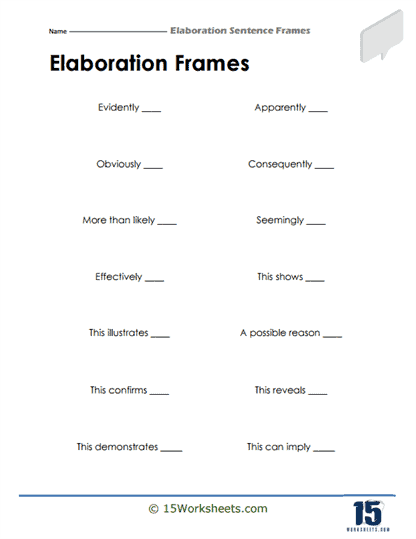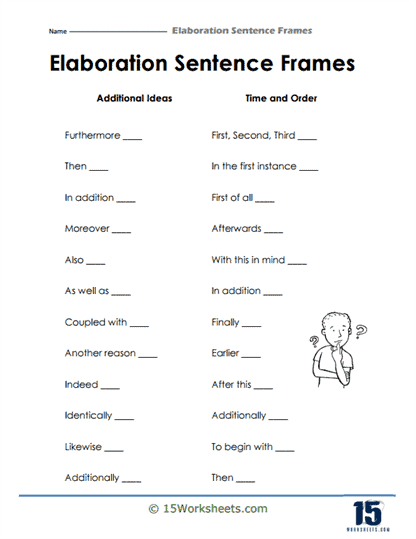Elaboration Sentences Worksheets
All About These 15 Worksheets
This series of 15 worksheets is designed to help students enhance their writing skills by focusing on the art of elaboration. These worksheets provide targeted practice to develop students’ ability to add depth, detail, and richness to their sentences. By mastering elaboration techniques, students can improve the clarity, coherence, and overall quality of their writing, making their ideas more engaging and compelling. Through these worksheets, students will:
- Practice expanding upon ideas to elaborate them with the use of sentence stems or frames;
- Be familiar with the phrases used to elaborate ideas and how they can show emphasis, uncertainties, examples, cause and effect, references made or to introduce generally accepted concepts;
- Master various elaboration strategies;
- Learn to provide concrete evidence and vivid examples to support their ideas;
- And be challenged to craft complex and elaborate sentences.
Overall, this series of worksheets provides students with a comprehensive framework to develop their elaboration skills, enabling them to create more captivating and well-crafted sentences. These worksheets are designed to foster creativity, clarity, and precision in writing, empowering students to express their ideas with depth and impact. By practicing these exercises, students learn to add descriptive details, provide explanations, use comparative language, and incorporate examples and illustrations effectively.
Elaboration Strategies
Elaborating more on what you read or write requires a deeper understanding of the subject matter, critical thinking skills, and the ability to make connections between ideas. Here are some strategies to help you elaborate more effectively:
Summarize and paraphrase – Start by summarizing the main ideas or points from the text you’ve read. Paraphrase these ideas in your own words, demonstrating your understanding and making the content more relatable to your audience.
Ask questions – Asking questions about the material helps you think critically about the content and identify areas where you can expand. Consider the who, what, where, when, why, and how of the topic to dig deeper into the subject matter.
Provide examples – Offer relevant examples to illustrate the points you are discussing. Examples can come from real-life experiences, other texts, or hypothetical situations. They help readers understand the concept better and make your writing more engaging.
Analyze the topic – Break down the subject matter into smaller parts and analyze each aspect. Examine the cause and effect relationships, compare and contrast different viewpoints, or evaluate the merits of the ideas presented.
Make connections – Relate the topic to other subjects, ideas, or experiences to provide a broader context. Connecting the material to other aspects of your knowledge helps create a more comprehensive understanding and demonstrates the relevance of the topic.
Incorporate personal insights – Share your own thoughts, opinions, or experiences related to the subject. Adding a personal touch to your writing can make it more relatable and interesting for your audience.
Use quotes or references – Incorporate quotes from experts or references to other works to support your ideas and add credibility to your writing. Just remember to cite your sources properly to avoid plagiarism.
Reflect on the implications – Consider the broader implications, potential consequences, or applications of the topic. Discuss how the subject matter might impact society, culture, or other fields, and what future developments or research might be needed.
Revise and edit – Once you’ve elaborated on your ideas, review your writing for clarity, organization, and coherence. Make sure your points flow logically, and revise any sections that may be unclear or disjointed.
By incorporating these strategies, you can develop your ability to elaborate more effectively on what you read or write, enhancing the depth and richness of your work.


